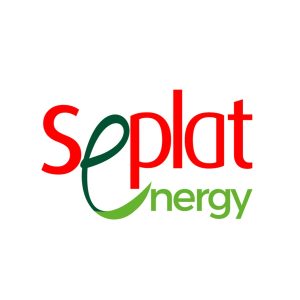Onome Amuge
Tensions are escalating in the oil-rich Ohaji/Egbema Local Government Area of Imo State, where the Ekugba community has issued a seven-day ultimatum to London-listed Seplat Energy. Residents accuse the independent Nigerian oil and gas company of persistent neglect and a failure to provide adequate compensation as a host community for its operations, threatening potential disruptions to the firm’s local activities.
Ekugba asserts it is the rightful owner and principal landlord of the land housing Ohaji South Oil Wells 3 and 4, in addition to a newly identified parcel within the F71 section of the Adapalm Estate, where Seplat is reportedly preparing for further drilling.
In a statement delivered via its legal representatives, George C. Akagha & Co., Ekugba demanded immediate engagement and compensation from Seplat. The ultimatum, formally conveyed in a letter addressed to Seplat and copied to the Imo State Government and relevant security agencies, underscored the company’s legal obligations under Nigerian law to provide tangible benefits to its host communities.
The letter, titled “Re-Commencement of Drilling Activities by Your Company within F71 Adapalm Estate, Ohaji,” warns of escalated actions should Seplat fail to comply.
The community alleges that Seplat has not only neglected constructive dialogue but has also continued its operations without due regard for Ekugba’s rights. They pointed at ongoing legal proceedings concerning the ownership of the contested oil well sites, citing Suit No: HOG/14/2014 – Chief Andrew Okorougo & Others vs. Seplat Petroleum Development Company Limited & Others. The discovery of an additional oil site on land they claim ownership of, while this suit is at an advanced stage, has reportedly ignited renewed outrage, particularly among the youth.
The Ekugba Restoration Team (ERT), representing the community’s youth, has vowed to resist further land clearing activities unless Seplat adheres to customary protocols, including paying traditional homage to Ekugba and formalising a Memorandum of Understanding (MoU) recognising them as the primary landlords. They also rejected any agreements Seplat may have with neighbouring communities, insisting these do not apply to land traditionally known as “Urashi” in Egbema, which they maintain is exclusively part of Ekugba’s ancestral domain.
Ekugba’s legal challenge extends to Seplat’s reliance on historical land lease agreements. They argue that the 1964 lease of the Adapalm Estate by the East Central State Development Authority, subsequently transferred to the Imo State Government in 1976, does not encompass mineral rights under the Nigerian Minerals and Mining Act of 2007. The community contends that a land lease does not automatically confer the right to extract natural resources, a right they claim has been continuously denied despite decades of oil operations on their land. They further cite provisions of the Petroleum Industry Act (PIA), which mandates compensation and stakeholder recognition for host communities, specifically landowners of oil sites, alleging Seplat’s non-compliance.
However, Seplat Energy, in a formal response signed by its Ibi-Ada Itotoi, managing director for East Onshore Operations, has denied any wrongdoing. The company asserts it operates within legally acquired portions of the Adapalm Plantation and is unaware of the precise area to which the community’s complaints refer.
Seplat’s letter emphasised that the Adapalm Plantation was originally leased by the East Central State Agricultural Development Authority from multiple communities, including Egbema, Ohuba, Amafor, Obosima, Obile, and Agwa. The land, according to Seplat, was duly registered at the Land Registry in Enugu and remains the property of the Imo State Government following the 1976 state reorganisation.
“Compensation payments for the use and occupation of these lands by Seplat were appropriately and validly made to the Imo State Government,” the company stated, adding that it operates in full compliance with the Petroleum Industry Act and other relevant laws.
Seplat further maintained that all communities who originally leased their land to the East Central Government, including Obuomadike Autonomous Community, have been recognised as host communities and are receiving due benefits under Nigerian law.
This rebuttal appears to cast doubt on Ekugba’s claim to exclusive ownership of the disputed land, citing historical agreements and state-level jurisdiction over the plantation area. Yet, it has done little to assuage the community’s discontent. Ekugba leaders argue that referencing what they describe as long-expired and legally unrecognised leases from the East Central government, and generalising land ownership among multiple communities, undermines their unique claims and cultural ties to the specific land parcels now being exploited.
As the seven-day ultimatum draws to a close, concern is mounting over the potential for confrontation. Community leaders are calling for urgent intervention from the Imo State Government and the Federal Ministry of Petroleum Resources to mediate the dispute and ensure Seplat fulfils its obligations under both traditional and statutory frameworks.
Observers suggest the Ekugba-Seplat standoff serves as a potent reminder of the enduring tensions between oil companies and host communities in Nigeria’s Niger Delta, a region where decades of resource extraction have frequently been accompanied by accusations of neglect, protracted legal battles, and social unrest. Seplat faces a critical decision: whether to re-evaluate its engagement strategy with the Ekugba people, or risk a fresh wave of operational disruptions in Imo State.









